Description
Gate Electrical Video Lectures Free 2024
GATE Electrical Video Lecture Free
GATE short for Graduate Aptitude Test in Engineering. It is an exam that is a door of direct recruitment in many highly reputed Government and Corporate organization. Every year, the GATE exam organizing board, the university of IIT, NIIT, IIM, and IISc, etc conducts the GATE Exam in the month of January and February and its result is out in the month of March.
The GATE Electrical exam 2024, besides direct recruitment of Government and Corporate jobs, gives aspirants an opportunity of doing M.Tech, MSC, MCA with the financial support of the Government every month. So, If your field is electrical or you want to make a bright future with any electrical degree through the GATE exam then your preparation should also be strong and in-depth.
Advantages of GATE Electrical Video Lectures:
- When any prestigious competitive exam’s notification is out, aspirants’ first concern is where will he/she find good coaching? Most of the students prefer to join the reputed coaching institute for strong preparation. But, unfortunately, we have to say that these institutes loot student’s hard-earned money. They can’t give students that level coaching, which they claim. But, online video lectures coaching gives students better study and in the right direction.
- The GATE Electrical Video Lectures from the Online Khan market is the design of the deep R & D of our specialized faculties.
- Under this video lecture, every important information is included about your upcoming GATE Electrical exam in 2024 like the complete syllabus coverage, age limit, right educational criteria to fill its application, and most importantly teaching lectures on every topic of electrical with good short-cut tricks and concept clarity.
- This video lecture is designed keeping in mind those students, who can’t attend the regular and weekly classrooms. And often gets behind the students attends regular or weekend classes.
- Our GATE Electrical video lecture provides fully engaging and informative information about the latest GATE Electrical exam in 2024.
- Its all videos are for many hours and cover everything in detail. No important part is left, the complete lecture’s design is the result of the top-class expertise of our GATE Electrical faculties. The lecture is presented with the full clearance you will not feel bored at any point.
- For this video lecture, you don’t have to spend even a rupee, it is available completely free and besides the Online khan market, it is available in many other places on the internet.
What is GATE Electrical Exam?
GATE Electrical Exam is the GATE (General Aptitude Test in Engineering Examination) that specifically deals with the professional electrical engineering. Every year, this exam is jointly conducted by IISc (Indian Institute of Science), NIIT and by 7 IIT (Indian Institute of Technology) Delhi, Roorkee, Kharagpur, Guwahati, Chennai or Madras, Bombay or Mumbai, and Bangalore. The whole GATE electrical exam is a total of 65 marks out of which to qualify needs at least 33 marks. Most of the questions in the GATE exam that comes in this exam are from Electronics, Electromagnetics, and Engineering Mathematics.
The syllabus that this GATE Electrical Video Lectures 2024 includes are:
General Aptitude Section:
This section examines candidates’ verbal and numerical ability with the common or basic level Mathematical, English comprehension and English Grammar questions. This section in GATE Electrical Video
Verbal Ability:-
- Sentence Completion.
- Word Groups.
- Verbal Analogies.
- Critical Reasoning.
- Verbal Deduction.
- Word Groups.
Numerical Ability:-
- Numerical Estimation.
- Numerical Computation.
- Data Interpretation.
- Numerical Reasoning etc.
Engineering Mathematics:-
Linear Algebra:-
- System of Linear Equation,
- Eigenvalues.
- Matrix Algebra.
- Eigenvectors etc.
Differential Equation:-
- Higher-Order Linear.
- First-Order Equations in Linear and Non-Linear.
- Method of Variation of Parameters.
- Partial Differential Equations.
- Initial and Boundary Value Problems.
- Method of Variation of Parameters.
- Euler’s Equation.
- Differential Equations with Constant Coefficients.
- Cauchy’s equation.
Probability and Statistics:-
- Standard Deviation.
- Poisson Distribution.
- Binomial Distribution.
- Regression Analysis.
- Discrete and Continuous Distributions.
- Correlation Analysis.
- Random Variables.
- Mean.
- Median.
- Mode.
- Sampling Theorems.
- Conditional Probability.
- Normal Distribution etc.
Transform Theory:-
- Laplace Transform.
- Fourier Transform.
- z‐Transform etc.
Complex variables:-
- Taylor Series.
- Residue Theorem.
- Solution Integrals.
- Analytic Functions.
- Cauchy’s Integral Formula.
- Cauchy’s Integral Theorem.
- Laurent Series.
Calculus:-
-
- Evaluation of Definite and Improper Integrals.
- Surface Integral.
- Stokes’s Theorem.
- Green’s Theorem.
- Fourier Series.
- Mean Value Theorems.
- Partial Derivatives.
- Directional Derivatives.
- Line Integral.
- Vector Identities.
- Volume Integral.
- Gauss’s Theorem.
- Maxima and Minima.
- Theorems of Integral Calculus.
- Mean Value Theorems.
Numerical Methods:
- Single and Multi‐step Methods for Differential Equations.
- Solutions of Nonlinear Algebraic Equations, etc.
In Electrical Circuit:
- Thevenin’s Theorem.
- Superposition theorem.
- Maximum Power Transfer Theorem.
- Power and Power Factor in AC Circuits.
- Three-Phase Circuits.
- Network Graph.
- KCL, KVL.
- Transient Response of DC and AC Networks.
- Resonance, Passive filters.
- Two‐Port Networks.
- Sinusoidal Steady‐State Analysis.
- Ideal Current and Voltage Sources.
- Node and Mesh Analysis etc.
Control System:
- Routh-Hurwitz and Nyquist Criteria.
- State-Space Model.
- State Transition Matrix.
- P, PI and PID controllers.
- Lead and Lead‐Lag Compensators.
- Mathematical Modeling and Representation of Systems.
- Block Diagrams and Signal Flow Graphs.
- Bode Plots.
- Feedback Principle.
- Transient and Steady‐State Analysis of Linear Time-Invariant Systems.
- Root Loci.
- Stability Analysis.
- And Lag etc.
Power System:-
- Differential and Distance Protection.
- Power Factor Correction.
- Circuit Breakers.
- System Stability Concepts.
- Electric Field Distribution and Insulators.
- Power Generation Concepts.
- Symmetrical and Unsymmetrical Fault Analysis.
- Series and Shunt Compensation.
- Models and Performance of Transmission Lines and Cables.
- Per‐Unit Quantities.
- Bus Admittance Matrix.
- Equal Area Criterion.
- Distribution Systems.
- Symmetrical Components.
- Voltage and Frequency control.
- And GaussSeidel and Newton-Raphson Load Flow Methods etc.
Analog and Digital Electronics:
- Combinational and Sequential Logic Circuits, Multiplexer.
- Demultiplexer.
- Characteristics of Diodes.
- Simple diode circuits.
- Clipping, Clamping, Rectifiers.
- Schmitt Trigger.
- A/D and D/A Converters.
- 8085Microprocessor: Architecture.
- Programming and Interfacing.
- Equivalent circuit and Frequency response; Feedback amplifiers and Oscillator.
- BJT.
- MOSFET.
- Sample and hold circuits.
- Operational Amplifiers.
- And Characteristics and Applications etc.
Signal and System:-
- Shifting and Scaling Operations.
- Applications of Fourier Transform.
- Fourier Series Representation of Continuous Periodic Signals.
- Linear Time-Invariant and Causal Systems.
- Sampling Theorem.
- Representation of Continuous and Discrete-Time Signals.
- Laplace Transform.
- And z-Transform etc..
Electromagnetic Fields:-
- Effect of Dielectric Medium.
- Magnetic Circuits.
- Self and Mutual Inductance of Simple Configurations.
- The capacitance of Simple Configurations.
- Electric Flux Density.
- Gauss’s Law.
- Coulomb’s Law.
- Line, Plane and Spherical Charge Distributions.
- Electric Field and Potential due to Point.
- Bio‐Savart’s Law, Ampere’s Law, Curl.
- Faraday’s Law.
- Lorentz Force, Inductance.
- Magnetomotive Force.
- Reluctance.
- Electric Field Intensity.
- And Divergence etc..
Electrical Machine:-
- Starting and S[eed Control of DC Motors.
- Operating Principle of Single Phase Induction Motors.
- Parallel Operation of Auto Transformer.
- DC machines which are separately excited,
- series and shunt.
- Synchronous machines of cylindrical and Salient Pole Machines,
- Types of Losses and Efficiency Calculations of Electric Machines.
- Three Phases Induction Motors: Principle of Operation, Performance. and Types.
- Torque-Speed Characteristics.
- Single-Phase Transformer:Equivalent Circuit and Phasor Diagram.
- Open Circuit and Short Circuit Tests.
- Regulation and Efficiency.
Power Electronics:-
- Single and Three-Phase Configuration of Uncontrolled Rectifiers
- Power Factor.
- Characteristics of semiconductor power devices: Thyristor, GTO, MOSFET, GTO, Triac, Diode, IGBT etc.
- Issues of line current harmonics.
- Single and Three-Phase Configuration of Uncontrolled Rectifiers.
- conversion: Boost, Buck, and Buck-Boost converters.
- Distortion Factor of AC to DC Converters.
- Line Commutated Thyristor Based Converters.
- Bidirectional AC to DC Voltage Source Converters.
- And Sinusoidal Pulse Width Modulation etc.
About Our GATE Electrical Video Lectures:
Today, the online video lectures have brought a revolution in competitive exam success. Any video lecture is not cheap to produce. The main purpose of producing video lectures is to help students, who are unable to join any best coaching at the time of the exam. And also for those can attend coachings but can’t get quality preparation. Due to the large batch strength in the classroom, the faculties can’t give proper attention and doubt clearance to students. And this is the biggest drawback to the way of success in the GATE Electrical Exam.
If you are getting prepared for this year’s GATE Electrical then, you should try our GATE Electrical Video Lectures Free 2021. In these video lectures, all the above-mentioned syllabus are very well-explained. It is designed by many experts faculties with detailed research. Generally, to learn from any quality video lectures, aspirants spend a quality amount. But in Online Khan Markets GATE Electrical video lectures, you no need to spend a penny. It is completely free and available in various places on the internet.
UPSC Coaching Insititute In Delhi
UPSC Coaching Insititute In Hyderabad
UPSC Coaching Insititute Bangalore
IAS Coaching Insititute Of Kolkata
Contact In formation
For inquiry and talk you can go along with us our what’s app gather such a large number of understudies are as of now gone along with us you can like wise join at 9354925302 and visit our site Examophobia
For soft copy data about UPSC,IPS,IAS, Study material our official unravel your inquiries with neighborliness so understudies call us 9354925302 and visit our site Onlinekhanmarket

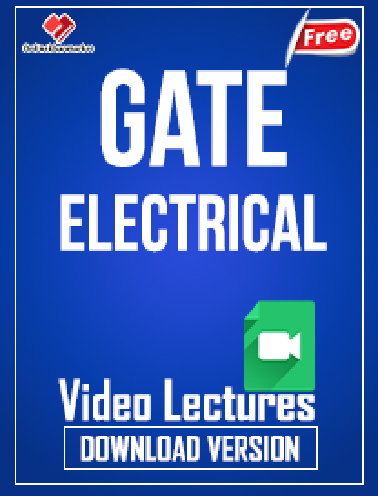





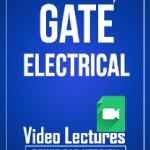
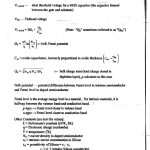
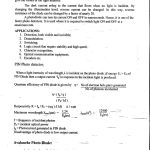

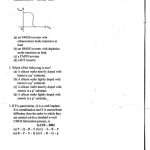
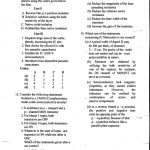
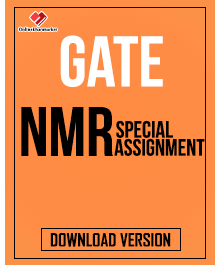
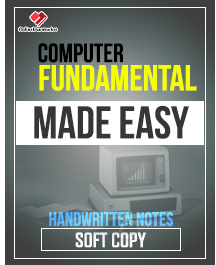
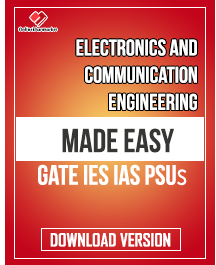

Reviews
There are no reviews yet.